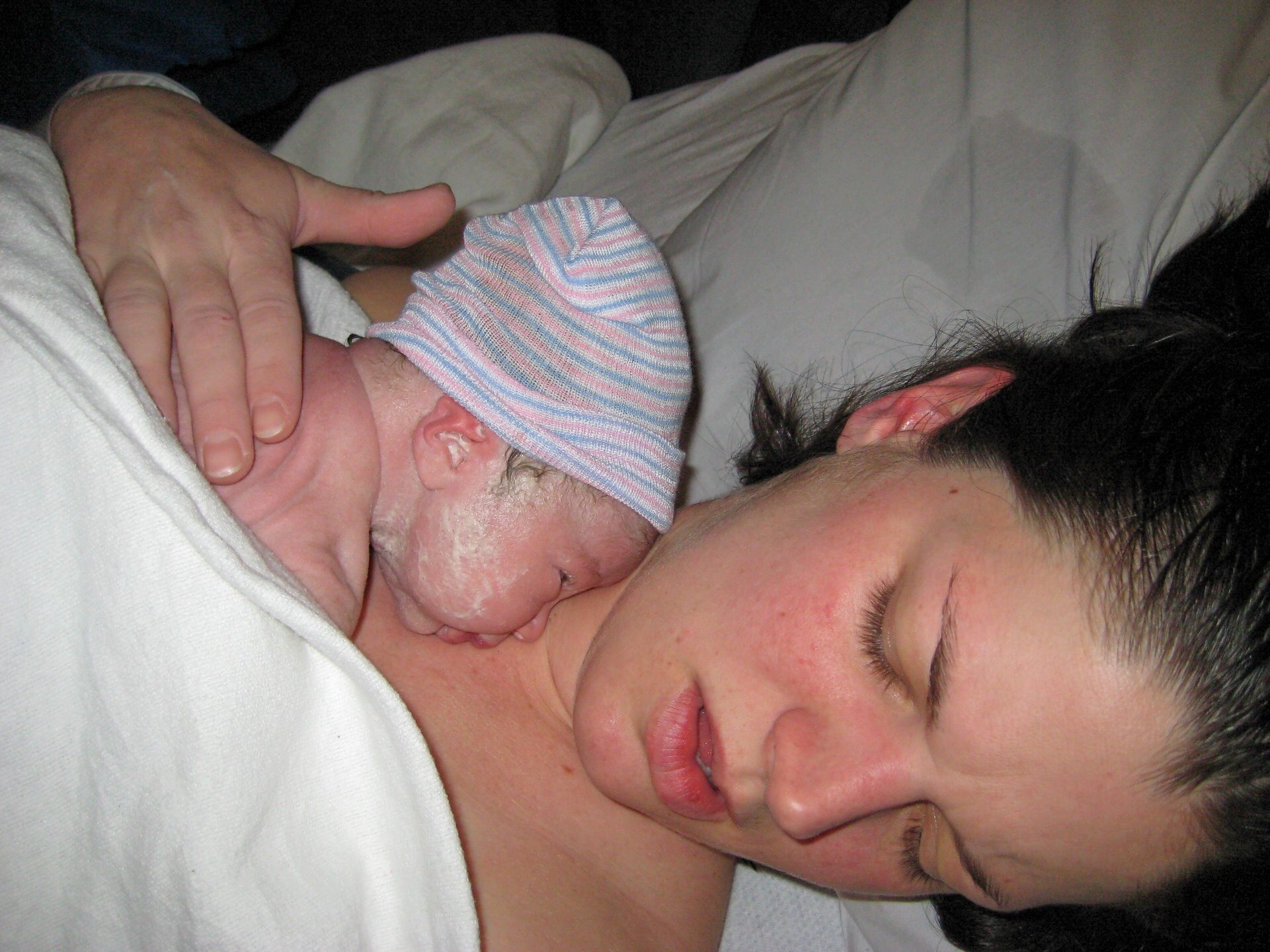 Your baby is the prime instigator of labor in a physiologic birth. He begins the whole process of birth via dynamic fluid communications through his placenta.
Your baby is the prime instigator of labor in a physiologic birth. He begins the whole process of birth via dynamic fluid communications through his placenta.
In utero your baby tracks all of her own internal development. Researchers seeking the triggers for onset of labor have found that fetal lung maturity is a key event. Among mammals, the lungs are the last organ to be ready for the outer world. “Parturition (birth) is timed to begin only after the developing embryo is sufficiently mature to survive outside the womb.”
Condon, et al conclude that, during the final weeks in utero, your baby creates proteins which coat the inner surfaces of her lungs. When her lungs are fully mature, her surfactant protein acts as a signal that streams through her blood and is received by her placenta, which then sends chemical messengers onto mama. Your uterus responds with contractile activity.(1)
In this chemical relay your baby’s placenta plays a primary mediating role in initiating labor. Your baby has grown his placenta as a specialized organ of support. Because the placenta is external to the baby, we sometimes confuse it as being other than the baby or as being part of the mother’s body. Yes, mother’s uterine membranes influence and help placental development. But the placenta originates from the embryo.
Just as she creates a heart and circulatory system, your baby creates her placenta to interface with your uterus. Her first blood vessels, the beginning of her placental circulatory system, are created beginning her third week post-conception. (2) Your blood supply comes to the surface of her placenta, where oxygen and nutrients from you diffuse across a permeable membrane. Your baby draws your nutrients into her placental circulatory system, then streams this fresh goodness through her umbilical cord vessels to her little body. She continues to build her circulatory system, both in her placenta and in her body, for months to come. Along the way she calls on you to provide her with oxygen and nutrients while she is still building all her other tissues, such as internal organs, bones, muscles and nerves.
When he is ready, with mature lungs at full term, your baby’s endocrine system and placenta effuse a stream of hormones which begin your birth time together. This intermediary role has been called the ‘placental clock’ for initiation of the birth. Your baby’s hormones signal your body to release a cascade of hormones that trigger your uterine surges and ready him for what he is next to undertake.
Now she has given a catalyst – a powerful, invisible, underground action that changes everything. Both you and your baby are now engaged in a shared continuous, dynamic fluid communication for birth. Now she has started her birth and with her, you begin a whole new journey, soon to be heart to heart together.
1. 2004. Condon J, Pancharatnam J, Faust J and Mendelson C. Surfactant protein secreted by the maturing mouse fetal lung acts as a hormone that signals the initiation of parturition. Proceedings of the National Academy of Sciences of the United States. Vol. 101 No. 142.2. 2009. Shoenwolf G, Bleyl S, Brauer P, Francis-West P. Larsen’s Human Embryology. Elsevier Churchill Livingstone. Philadelphia, PA
